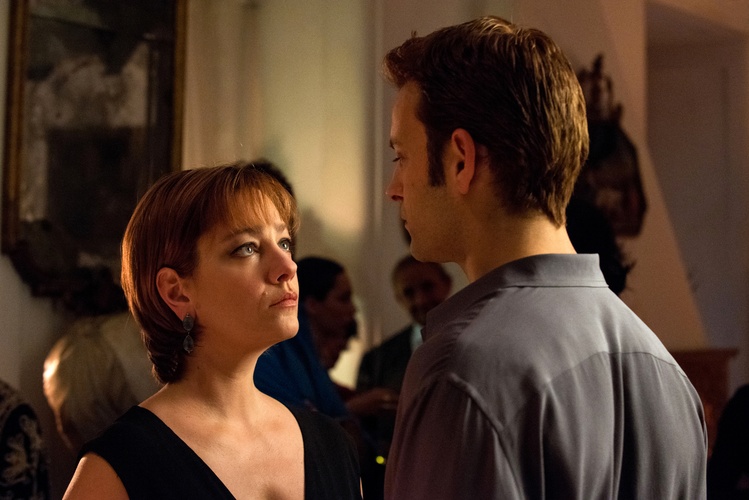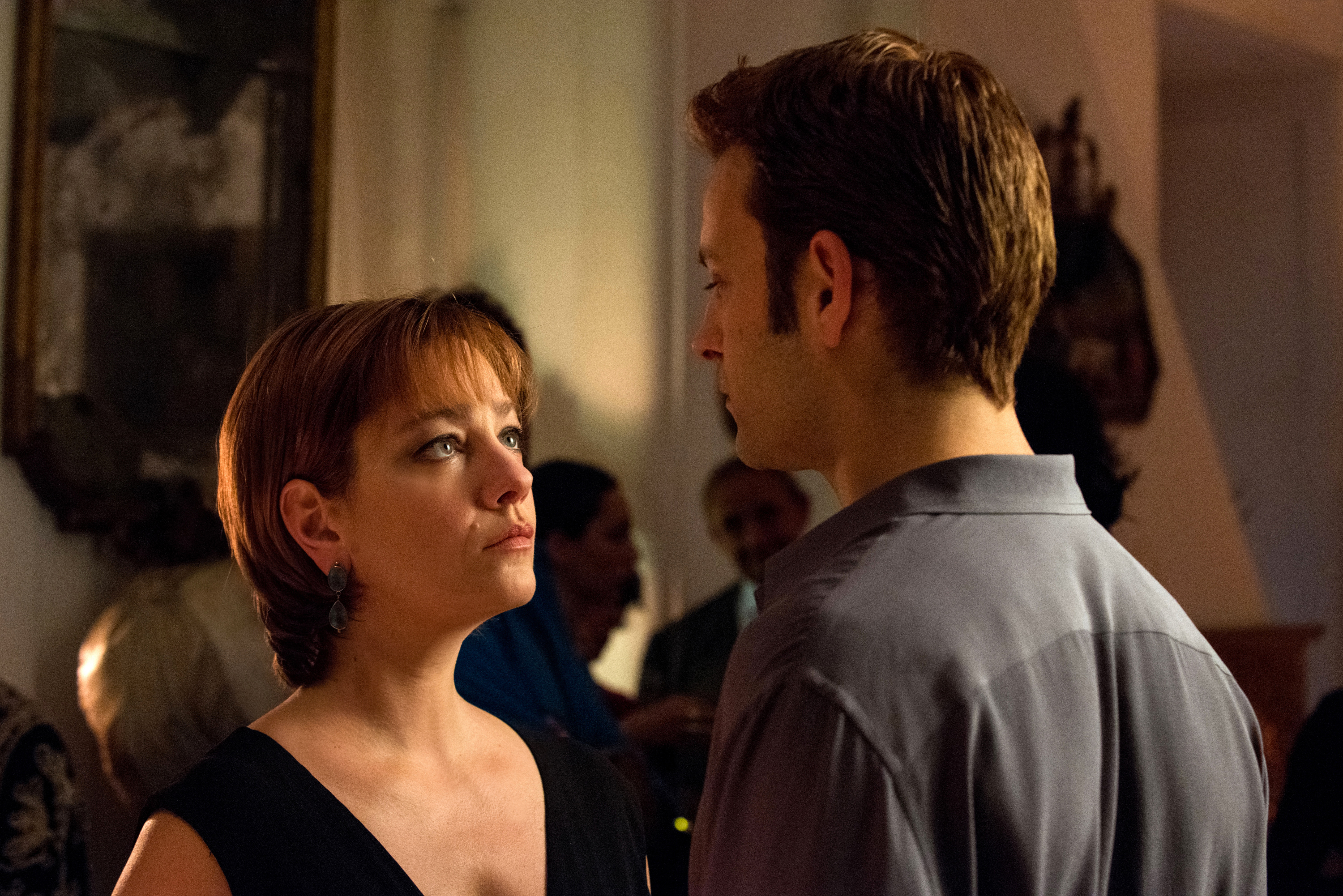Adriana is swept away. Finally, she is alive.
When the sun rises she smiles and agrees to a first date.
But Andrea never shows.
So begins a gripping metaphysical murder mystery, in which Naples becomes a shadowy, mysterious labyrinth of desire and memory.
This is the story of Naples in Veils, the latest film in Ferzan Ozpetek’s sumptuous oeuvre.
We speak with the Turkish-Italian director about his latest masterpiece.
Let’s begin in Naples: I read that your first job as assistant director was in 1983 on the set of Scusate il ritardo by Massimo Troisi. What was it like to work with him?
At the time I was working as a journalist for a magazine and my dream was to enter into the world of cinema, so I was mainly interested in interviewing directors such as Bernardo Bertolucci, the Taviani brothers and Elio Petri.
At the end of every interview, I’d always ask if they needed a voluntary assistant, often shocking them, given that I was from the world of publishing and not cinema.
When I asked Massimo Triosi, he responded with a smile and gave me the opportunity to learn what it meant to work on a set.
I owe him a great deal, because that film marked the beginning of my 16-year career as assistant director.
He will always be an important person to me and the memory of his kindness is a life lesson.
What inspired the idea to make a film in Naples?
I believe the idea of making a film in Naples appeals to all directors because it’s such a fascinating and mysterious city.
Naples in Veils is an impeccable interpretation of the city, where the sacred and profane are perceived, a very different place from the one depicted in Gomorra and other stereotypes. How did you expose this city’s secrets?
Many people advised me to make a film about Naples and while I had my doubts in the beginning, because Neapolitan directors are so great, I changed my mind.
I spent two months in Naples during the staging of La Traviata at the Teatro San Carlo and that time changed my view of the city.
Naples had a strong effect on me and I wanted to share these emotions with viewers.
The film opens in typical Peppe Barra-style during a scene which depicts the ritual of the “Figliata dei femminielli”, that is, the simulation of labour pains by a femminiello (a very effeminate homosexual male) lying on a bed.
During my time in Naples, I found myself in a house where the “Figliata” took place and during the ritual, a person appeared out of nowhere to cover the scene with a veil and told us to listen and not look, although it seemed as though you could see even more through the veil.
I then understood the mystery of the city, the ambiguity of things.
That’s how the title of the film came about.
It was inspired by the idea that the veil covers and uncovers things at the same time.
In your latest film there are many strong elements, and one of these is the eye: the elliptical staircase of Palazzo Mannajuolo, the metallic eye gifted by Adriana’s father, Andrea’s eyes gouged out, the walk of the blind in the city’s historic centre. What does the eye represent to you?
It’s the essence of the film; what’s seen and what’s not.
There’s the basement of the hospital where Adriana works and then there are the grand, bourgeois buildings.
They’re on the surface but they can’t be seen if you don’t know they’re there.
You walk along the street and see a door, which then opens to courtyards, hallways and stairs.
Everything we see always has two sides.
The entire film revolves around this - a blurred vision caused by a veil which covers and makes things invisible, which conceals, removes and forgets, but does not exactly hide.
Audiences have praised your depiction of the city.
Straight after the film was launched, I received a phone call from [ex-president] Giorgio Napolitano.
He was very impressed and he told me I had reminded him of the Naples he experienced during his youth.
He asked me how I managed to grasp the city’s many details.
How did I manage to see the things that only Neapolitans are able to see?
It was an honour to receive a compliment like that.
The Lavazza Italian Film Festival has dedicated a special space to you, screening four of your films.
I’m extremely happy to know that my work is appreciated from so far away.
I’ve never been to Australia but it’s definitely something I’d like to do.
Why did you choose Italy as the country in which you pursued your career in cinema?
My mother always told me of her holidays in Italy and when I was 17 years old, I packed my bags and left.
I’ve lived in Italy for 43 years and every time I travel for work or otherwise, I feel a sense of joy coming home.
It’s difficult to explain - it’s like if someone was to ask you why you fell in love with a person… how do you answer that?!
I was moved by a quote in Loose Cannons: “‘Normality’, what an ugly word!” Do you embrace this concept?
I don’t know what normality is.
We have to decide for ourselves what makes us happy beyond appearances.
When people ask me why the theme of homosexuality always features in my films, I respond by saying that I don’t talk about it too much, but others don’t talk about it enough.
I make films about life, and this is part of life.
Can you let us in on any future projects?
I’m preparing my third book and will begin shooting my next film in June 2019.
I’ll also be directing Madame Butterfly at Naples’ Teatro San Carlo in April 2019.
There’s a lot to be done!
Aside from cinema, what is your greatest passion?
I love cooking.
Food is my passion and if I didn't end up in cinema, I would’ve definitely become a chef.
I also like to paint, and the design for The Ignorant Fairies is actually mine!
The Lavazza Italian Film Festival will screen four of Ferzan Ozpetek’s films, including his latest masterpiece, Naples in Veils.
For more information visit the festival’s website.












